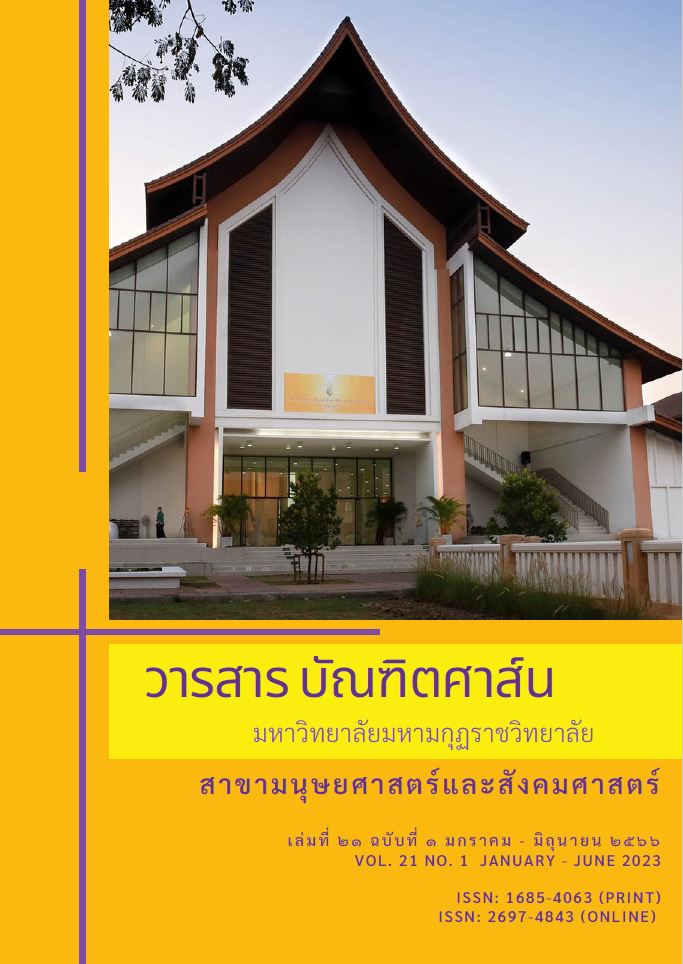ปัจจัยที่มีอิทธิพลต่อการถ่ายโอนความรู้จากการฝึกอบรมของพยาบาลวิชาชีพ
คำสำคัญ:
การฝึกอบรม, การถ่ายโอนความรู้จากการฝึกอบรม, ปัจจัยที่มีอิทธิพลกับการถ่ายโอนความรู้จากการฝึกอบรมบทคัดย่อ
การวิจัยครั้งนี้มีวัตถุประสงค์ 1) เพื่อศึกษาการถ่ายโอนความรู้จากการฝึกอบรมของพยาบาลวิชาชีพ
2) เพื่อศึกษาปัจจัยที่มีอิทธิพลต่อการถ่ายโอนความรู้จากการฝึกอบรมของพยาบาลวิชาชีพ 3) เพื่อศึกษาความสัมพันธ์ระหว่างปัจจัยคุณลักษณะของผู้เข้าฝึกอบรม ปัจจัยแรงจูงใจ ปัจจัยสภาพแวดล้อมการทำงานและปัจจัยความสามารถกับการถ่ายโอนความรู้จากการฝึกอบรมของพยาบาลวิชาชีพ 4) เพื่อสร้างสมการทำนายการถ่ายโอนความรู้จากการฝึกอบรมของพยาบาลวิชาชีพจากปัจจัยคุณลักษณะของผู้เข้าฝึกอบรม ปัจจัยแรงจูงใจ ปัจจัยสภาพแวดล้อมการทำงาน และปัจจัยความสามารถ ประชากรในการศึกษาครั้งนี้เป็นพยาบาลวิชาชีพสังกัดฝ่ายการพยาบาล โรงพยาบาลจุฬาลงกรณ์ จำนวน 2,022 คน เริ่มต้นการวิจัยเชิงปริมาณโดยเลือกกลุ่มตัวอย่างและใช้วิธีการสุ่มอย่างง่าย (Simple Random Sampling) จำนวน 330 คน เป็นพยาบาลวิชาชีพที่เข้าร่วมโครงการฝึกอบรม ระยะเวลาตั้งแต่ 4-15 วัน ซึ่งจัดโดยงานพัฒนาทรัพยากรบุคคล ฝ่ายการพยาบาล โรงพยาบาลจุฬาลงกรณ์ เครื่องมือที่ใช้ในการวิจัย คือ แบบสอบถาม ผลการวิจัยพบว่า ในภาพรวมมีระดับการถ่ายโอนความรู้จากการฝึกอบรมอยู่ในระดับมาก เมื่อพิจารณารายด้านพบว่า ด้านการใช้ความรู้ในการทำงานสูงที่สุด รองลงมา คือ ด้านการใช้ทักษะในการทำงาน และด้านการมีทัศนคติที่ดีต่อการทำงาน ตามลำดับ นอกจากนี้การถ่ายโอนความรู้จากการฝึกอบรมโดยรวมของพยาบาลวิชาชีพมีความสัมพันธ์อย่างมีนัยสำคัญทางสถิติที่ .01 กับตัวแปรปัจจัยคุณลักษณะของผู้เข้าฝึกอบรม ปัจจัยแรงจูงใจ ปัจจัยสภาพแวดล้อมการทำงาน และปัจจัยความสามารถ และการวิเคราะห์ถดถอยพหุคูณแบบขั้นตอน (Multiple Regression Analysis: Stepwise) เมื่อสร้างสมการทำนายการถ่ายโอนความรู้ พบว่า ปัจจัยที่ส่งผลมี 3 ปัจจัย คือ ปัจจัยคุณลักษณะของผู้เข้าฝึกอบรม ปัจจัยแรงจูงใจ และปัจจัยความสามารถ โดยทั้งสามปัจจัยสามารถพยากรณ์ได้ร้อยละ 67 (Adjusted R2 = 0.67) อย่างมีนัยสำคัญทางสถิติที่ระดับ .01
เอกสารอ้างอิง
กรมอาเซียน กระทรวงการต่างประเทศ. (2561). ความเชื่อมโยงระหว่างกันในอาเซียน(ฉบับย่อ): ASEAN
CONNECTIVITY. (ฉบับย่อ): ASEAN CONNECTIVITY. ค้นเมื่อ 13 พฤศจิกายน 2561,
จาก http://www.mfa.go.th/asean/contents/files/customize-20121218-094305-241038.pdf
ชูชัย สมิทธิไกร. (2556). การฝึกอบรมบุคลากรในองค์กร. พิมพ์ครั้งที่ 8. กรุงเทพฯ: โรงพิมพ์แห่งจุฬาลงกรณ์มหาวิทยาลัย.
ณฐวรรณ เมธรุจภานนท์. (2558). ปัจจัยที่มีอิทธิพลต่อการถ่ายโอนการเรียนรู้ ภายหลังการฝึกอบรม หลักสูตรการพยาบาลเฉพาะทางของพยาบาลวิชาชีพ. วิทยานิพนธ์นี้เป็นส่วนหนึ่งของการศึกษาตามหลักสูตรพยาบาลศาสตรมหาบัณฑิต (การบริหารการพยาบาล) คณะพยาบาลศาสตร์ มหาวิทยาลัยเชียงใหม่ ค้นเมื่อ
กุมภาพันธ์ 2561 จาก https://tcithaijo.org/index.php/cmunursing/article/view/39415/32609
ดารารัตน์ ศรีธรรมพินิจ. (2551). ปัจจัยที่มีอิทธิพลต่อการถ่ายโอนการเรียนรู้จากการฝึกอบรมใน
หลักสูตรระยะยาวของพยาบาลโรงพยาบาลศิริราช. วิทยานิพนธ์นี้เป็นส่วนหนึ่งของการศึกษาตามหลักสูตรวิทยาศาสตร์มหาบัณฑิต (การบริหารการพยาบาล) คณะสาธารณสุขศาสตร์ มหาวิทยาลัยมหิดล.
ธวัช ธนสมบูรณ์. (2556). การถ่ายโอนความรู้จากการฝึกอบรมจากชั้นเรียนสู่สถานประกอบการ: กรณีศึกษามูลนิธิสถาบันการพูดแบบฑูต. การค้นคว้าอิสระนี้เป็นส่วนหนึ่งของการศึกษาตามหลักสูตรปริญญาบริหารธุรกิจมหาบัณฑิต คณะบริหารธุรกิจ มหาวิทยาลัยเทคโนโลยีราชมงคลธัญบุรี. ค้นเมื่อ 8 กุมภาพันธ์ 2561 จาก
http://www.repository.rmutt.ac.th/bitstream/handle/123456789/2027/139292.pdf?sequence=1
นภาวรรณ จ้อยชารัตน์. (2558). การจัดการฝึกอบรมและแรงจูงใจที่มีความสัมพันธ์ต่อการถ่ายโอนความรู้จากการฝึกอบรม: กรณีศึกษา สถาบันวิจัยวิทยาศาสตร์และเทคโนโลยีแห่งประเทศไทย. การค้นคว้าอิสระนี้เป็นส่วนหนึ่งของการศึกษาตามหลักสูตรปริญญาบริหารธุรกิจมหาบัณฑิต คณะบริหารธุรกิจ มหาวิทยาลัยเทคโนโลยีราชมงคลธัญบุรี. ค้นเมื่อ 11 มกราคม 2561. จาก https//goo.gl/CLDicZ
นิสดารก์ เวชยานนท์. (2559). การประยุกต์ใช้ความรู้ที่ได้รับจากการฝึกอบรม: กรณีศึกษาหลักสูตร
การพัฒนาผู้บริหารระดับกลางของการประปานครหลวง. ค้นเมื่อ 6 มกราคม 2561.
เพ็ชรี รูปะวิเชตร์. (2554). เทคนิคการจัดฝึกอบรมและการจัดฝึกอบรม. กรุงเทพฯ: ดวงกมลพับลิชชิ่ง.
ยุวดี ศิริยทรัพย์. (2560). การวางแผนทรัพยากรมนุษย์. พิมพ์ครั้งที่ 1. กรุงเทพฯ: สำนักพิมพ์แห่งจุฬาลงกรณ์
มหาวิทยาลัย.
เรมวล นันท์ศุภวัฒน์, อารีวรรณ กลั่นกลิ่น, วันชัย เลิศวัฒนวิลาศ, นุศร จิตวิชา และมัลลิกา อุดมสิน.(2558). บทเรียนจากการถ่ายโอนความรู้ภายหลังการฝึกอบรมเฉพาะทางของศูนย์บริการพยาบาล คณะพยาบาลศาสตร์ มหาวิทยาลัยเชียงใหม่. ค้นเมื่อวันที่ 6 มีนาคม 2561. จาก https://goo.gl/AWRCoS
สำนักงานคณะกรรมการพัฒนาการเศรษฐกิจและสังคมแห่งชาติ (สคช.) (2561). ร่างกรอบยุทธศาสตร์ชาติ ระยะ 20 ปี (พ.ศ. 2560 -2579). ค้นเมื่อ 1 พฤศจิกายน 2561, จากhttp://www.nesdb.go.th/article_attach/article_file_20170106131224.pdf
Abed, H., Mansur, M., and Saleh, A., B. (2015). Effect of Organizational Culture and Business
Climate Within the Work Environment on Transfer of Training from the Perspective of
Workers in Palestinian Government Hospitals. Retrieved March, 20, 2018, from
http://journals.ekb.eg/article_17598_da77a916a459ae7b5dda71feb663488c.pdf
Baldwin, T., & Ford, K. J. (1988). Transfer of Training: A Review and Directions for Future
Research. Retrieved May, 12, 2018, from
https://www.researchgate.net/publication/209409925
Bates, R., Holton III, E., F., and Hatala, J., P. (2012). A revised learning transfer system
inventory: factorial replication and validation. Retrieved July, 5, 2018, from
http://eds.b.ebscohost.com/eds/pdfviewer/pdfviewer?vid=1&sid=adbc0797- a21a-
a96-9916-ff1cf1c2e435%40pdc-v-sessmgr01
Bernardin, H. (2010). Human resource management: An experiential approach (5th ed.). Boston,
Mass.; London: McGraw-Hill.
Eid, A., & Quinn, D. (2017). Factors predicting training transfer in health professionals participating in quality improvement educational interventions. Peer Reviewed Journal. Retrieved June, 2, 2018, from https://bmcmededuc.biomedcentral.com/track/pdf/10.1186/s12909-017-08667
Holton, E. F. (1996). The flawed four-level evaluation model. Human Resource Development Quarterly, 7(1), 5-21.
Holton, E. F., Bates, R. A., & Ruona, W. E. A. (2000). Development of Generalized Learning
Transfer System Inventory.
Hutchins, H. M. (2009). In the trainers voice: A study of training transfer practices Performance Improvement Quarterly.
Ignatavicius, D., & Chung, C. E. (2016). Professional development for nursing faculty: Assessing
transfer of learning into practice, Teaching and Learning in Nursing, 11(4), 138-142.
Retrieved July, 25, 2018, from doi:10.1016/j.teln.2016.05.005
Ma, F., Bai, Y., Bai, Y., Ma, W., Yang, X., & Li, J. (2018). Factors influencing training transfer in nursing profession: a qualitative study. BMC Med Education, 18(1), 44. Retrieved
May, 19, 2018, from doi:10.1186/s12909-018-1149-7
Tannenbaum, S., & Yuki, G. (1992). Training and Development in work organization. Annual review of Psychology.
Wexley, K. N. & Latham, G. P. (2002). Developing and Training Human Resources in Organizations (Prentice Hall Series in Human Resources), 3rd Edition.
Retrieved May, 1, 2018, from http://eds.b.ebscohost.com/eds/pdfviewer/pdfviewer?vid=1&sid=7a54f6db-8b71-4b98-aff1-a0d976d9dfe8%40sessionmgr103
Wijk, R. V., Jansen, J. J., & Lyles, M. A. (2008). Inter-and intra-organizational knowledge transfer: A meta-analytic review and assessment of its antecedents and consequences. Retrieved July, 22, 2018, from https://onlinelibrary.wiley.com/doi/epdf/10.1111/j.1467-6486.2008.00771.x
Yamnil, S. (2001). Factors affecting transfer of Thailand, (Doctoral dissertation). Retrieved
July, 2, 2017, from http://library1.nida.ac.th/dai0/3032020.PDF
ดาวน์โหลด
เผยแพร่แล้ว
รูปแบบการอ้างอิง
ฉบับ
ประเภทบทความ
สัญญาอนุญาต
ลิขสิทธิ์ (c) 2023 มหาวิทยาลัยมหามกุฏราชวิทยาลัย

อนุญาตภายใต้เงื่อนไข Creative Commons Attribution-NonCommercial-NoDerivatives 4.0 International License.
บทความวิชาการและบทความวิจัยในวารสารฉบับนี้ถือเป็นความรับผิดชอบของผู้เขียนเท่านั้น บทความที่ได้รับการตีพิมพ์ในวารสารบัณฑิตศาส์น ถือเป็นลิขสิทธิ์ของมหาวิทยาลัยมหามกุฏราชวิทยาลัย ตามพระราชบัญญัติลิขสิทธิ์



